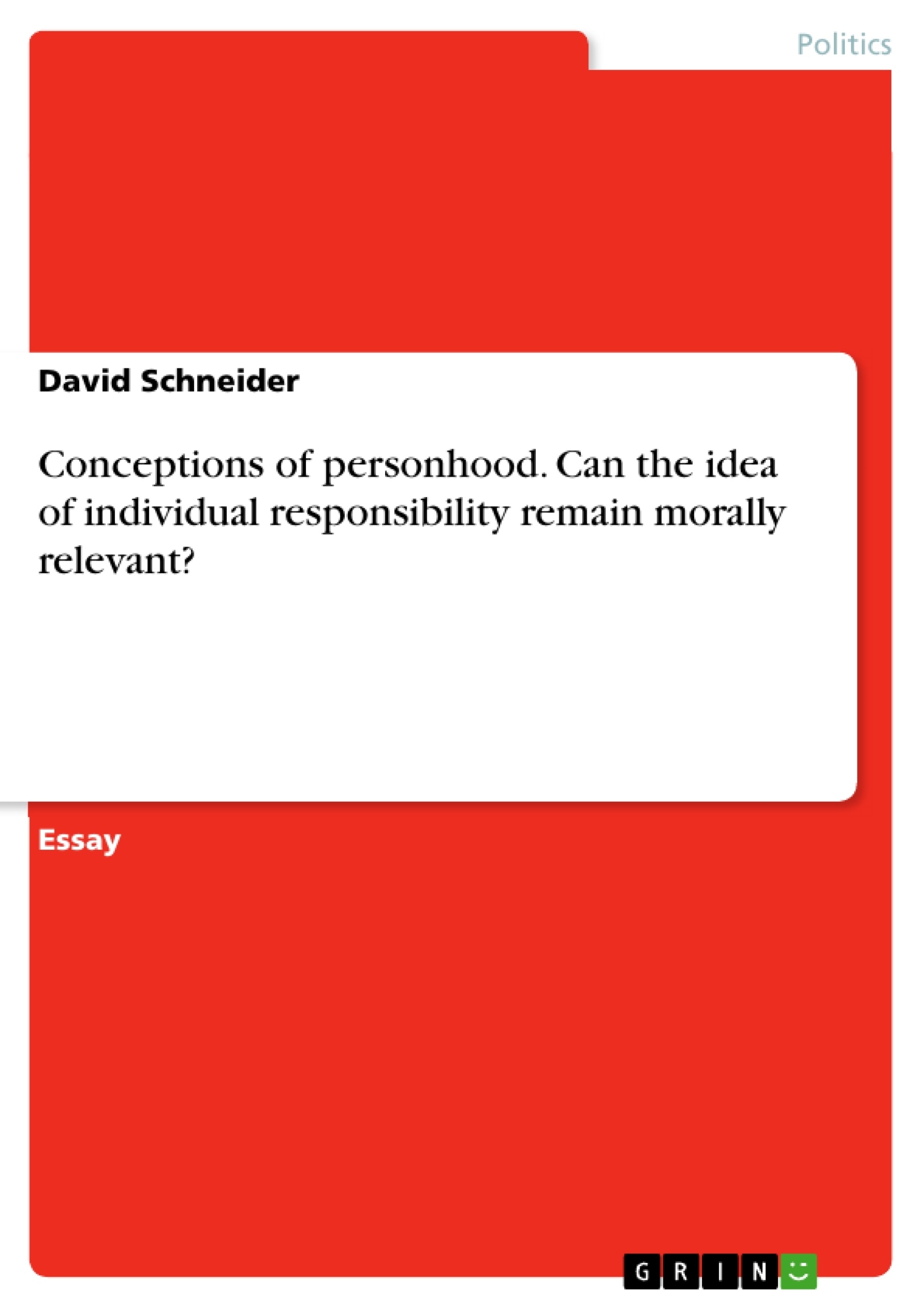A central element of African thought is the conception of communal personhood. In this essay, we will examine three such communal conceptions of personhood in light of their interrelation with individual responsibility.
First, we will have a closer look on Menkiti’s communal conception of personhood and will argue that his account alone is not able to justify individual moral responsibility, but that it is compatible with Gyekye’s communal conception of personhood that underlines certain mental features that hold communal agents individually responsible for their actions. After having discussed and responded to the problem regarding the extent to which a person’s reasoning and her moral sense is shaped by the communal culture she was socialized in, we will have a look on the third communal conception of personhood that arises in a Yoruba allegory and will discuss its implications for individual responsibility. At first, we extract the preferred Yoruba communal conception of personhood out of the allegory. Then, we apply our finding of ‘self-determined but communal’ action on three possible options of receiving one’s destiny in heaven and clarify for each the realm of individual responsibility.
Inhaltsverzeichnis (Table of Contents)
- Menkiti's Communal Conception of Personhood and Individual Responsibility
- Personhood as a Result of Communal Participation
- The Importance of Self-Awareness
- Gyekye's Critique of Menkiti
- The Influence of Communal Culture on Individual Reasoning
- The Yoruba Allegory and Individual Responsibility
- The Story of the Three Friends
- The Different Ways of Receiving one's Ori
Zielsetzung und Themenschwerpunkte (Objectives and Key Themes)
This essay explores the concept of individual responsibility within the context of communal conceptions of personhood. It focuses primarily on African thought, examining three specific conceptions of personhood and their implications for individual moral agency.
- The relationship between communal life and individual personhood
- The role of self-awareness and moral reasoning in individual responsibility
- The influence of communal norms and expectations on individual choices
- The Yoruba allegory and its insights into self-determination and communal participation
- The compatibility of individual responsibility with communal conceptions of personhood
Zusammenfassung der Kapitel (Chapter Summaries)
- Menkiti's Communal Conception of Personhood and Individual Responsibility: This chapter examines Menkiti's view of personhood as a product of communal participation and the discharge of moral obligations. It argues that while his conception emphasizes community, it does not necessarily preclude individual responsibility. Self-awareness, as a distinct feature, allows for a degree of individual agency.
- The Influence of Communal Culture on Individual Reasoning: This section explores the challenge of reconciling individual moral reasoning with cultural influences. Drawing on Gyekye's ideas, it argues that individuals with communal personhood are capable of independent moral judgments, even if these are shaped by their cultural backgrounds.
- The Yoruba Allegory and Individual Responsibility: This chapter analyzes a Yoruba allegory about choosing one's destiny, highlighting the significance of self-determination and the interaction with community. It argues that the allegory promotes a conception of personhood that allows for individual responsibility within a communal framework.
Schlüsselwörter (Keywords)
This essay delves into key themes of communal personhood, individual responsibility, self-awareness, moral reasoning, cultural influence, Yoruba allegory, and African philosophy. It investigates the intersection of these concepts, particularly as they relate to the development and exercise of individual agency within a communal context.
Frequently Asked Questions
What is the central theme of this essay on personhood?
The essay examines communal conceptions of personhood in African thought and their relationship with individual moral responsibility.
How does Menkiti define personhood?
Menkiti views personhood as a product of communal participation and the fulfillment of moral obligations, rather than an inherent quality from birth.
What is Gyekye's critique of Menkiti's account?
Gyekye argues that Menkiti's communal view must be balanced with individual mental features to justify personal moral responsibility for one's actions.
What role does the Yoruba allegory play in the essay?
The Yoruba allegory of the "Three Friends" is used to discuss how destiny (Ori) and individual self-determination interact within a communal framework.
Can communal culture coexist with individual reasoning?
Yes, the essay argues that while culture shapes individuals, they remain capable of independent moral judgment and self-determined action.
- Quote paper
- David Schneider (Author), 2017, Conceptions of personhood. Can the idea of individual responsibility remain morally relevant?, Munich, GRIN Verlag, https://www.grin.com/document/385488



